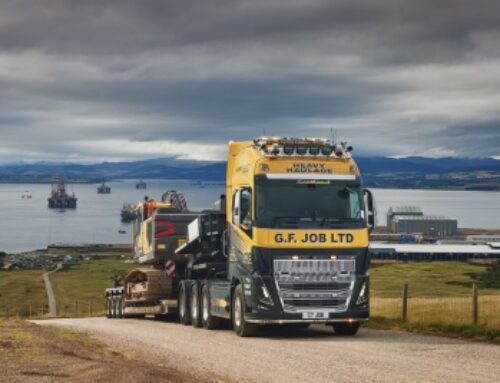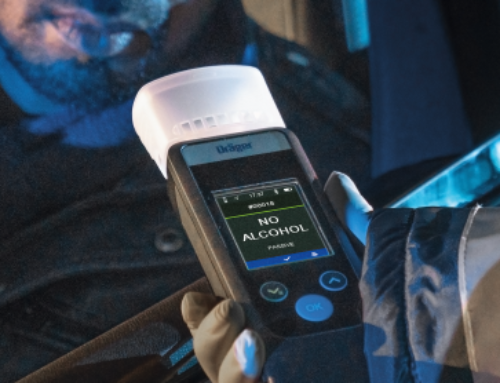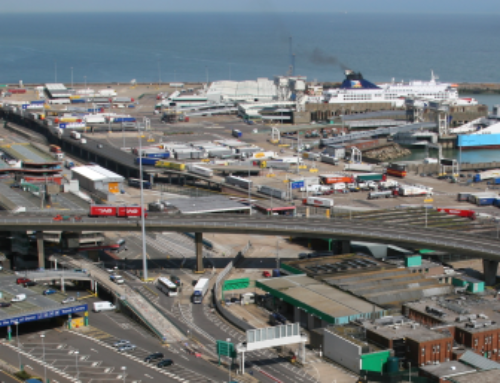Driver welfare plea among commissioner’s conference warnings
 Opening the Autumn round of Transport Manager Conferences organised by Logistics UK, Kevin Rooney, traffic commissioner (TC) for the West of England, warned delegates at a packed event in Shepton Mallet, Somerset last month that they should make looking after their drivers a priority.
Opening the Autumn round of Transport Manager Conferences organised by Logistics UK, Kevin Rooney, traffic commissioner (TC) for the West of England, warned delegates at a packed event in Shepton Mallet, Somerset last month that they should make looking after their drivers a priority.
The advice came as part of a wide-ranging speech by the independent regulator which touched on numerous aspects of fleet operations, maintenance and compliance where room for improvement had been identified.
“The driver shortage appears to be lessening. But the government still seems keen to step back to letting car licence holders drive 7.5-tonne vehicles,” TC Rooney said, in reference to the Department for Transport consultation into C1 driving entitlement launched in August (Transport Operator 110).
“The idea of letting someone loose in a full-size commercial vehicle when they have just passed their test in a Vauxhall Astra seems to me to be quite dangerous,” he opined.
He recounted how a driver had appeared before him for a breach of daily rest regulations. The driver had delivered to a local haulier and commenced his daily rest just outside the premises. He’d then realised that he needed to use the toilet, but had been refused access at the premises he had just visited, and had had to break his daily rest to drive 10 miles to a service area.
TC Rooney questioned whether this was an acceptable way to treat people.
Returning later to the theme, he spoke about the Generation Logistics campaign to ‘change the perception of the logistics industry’ among potential employees.
“You need to change the reality, not the perception,” he observed.
Addressing the objective of Generation Logistics to increase diversity in the workforce, he said: “Not many women will want to start the day by getting up and going for a poo in the hedge, and that’s the reality!”
There were still too many bridge strikes being recorded, he said. Operators could do more to help drivers: “All too often there is a vehicle height indicator board in the cabin in feet and inches, and the height on the trailer is shown in metres. It would be simple to show both sets of figures in the cab, yet no- one does it.
“We have to accept that feet and inches may not mean anything to a younger driver or one from abroad.”
Further to that, proper planning was key: routing software and maps showing low bridges were widely available.
“Letting drivers route themselves is a disaster. Transport managers must eradicate bridge strikes.”
TC Rooney also expressed concern about drivers and operators not informing him of issues that might affect their repute.
Operation Tramline, where the police use tractor units to see what drivers are up to in their cabs, had netted a lot of drivers using mobile phones illegally. Myths had grown up that ‘data protection’ prevented the police informing the TC of such offences. This was untrue.
He added that operators were also obliged to inform their TC if drivers failed an in-work drug test or similar.
“It could impinge on their good repute,” he warned. In spite of great publicity, load security was still an issue.
He recounted how he and London & South East TC Sarah Bell had spent a “nice day out at Chieveley Services,” observing random load security checks by DVSA.
“Four out of five curtainsiders had no internal load security, and no XL rating.”
TC Rooney recalled the inspection of a trailer carrying motorcycles to Jerez race circuit. They were surrounded by tyres, one of which fell and hit the driver on the head when he pulled back the curtain. Above the rest of the load, there was a tyre-changing rig balanced on a stillage!
One area where the industry was doing better was brake testing: “We have come a long way since we first raised this issue,” he said.
He urged transport managers to read and interpret the reports, not just to file them. “Compare it with the previous report, see if anything has changed.”
He said that workshops adjusting brakes to get compliant performance to get through the test was unacceptable.
“If an automatic slack- adjuster hasn’t worked, it needs to be replaced, not adjusted manually to get through the test…it will need adjusting again next week,” he pointed out.
Operators’ chosen third-party maintenance providers needed to be of professional standards.
“We need recognised qualifications for technicians working on trucks. In Devon and Cornwall, we see plant fitters and agricultural engineers trying to work on trucks.
“All third-party workshops should have their technicians’ accreditations available for customers to check: there are no data protection issues as some think.”
The issue of traction-only operators and third-party trailers is a current hot topic.
“There are UK-based companies that have fleets of 2,000 or more trailers and no O-licence. They use third- party hauliers exclusively to move them. These trailers are unloved, and may be pulled by as many as five different operators a day,” he observed.
“UK traction operators need an O-licence that specifies an appropriate number of trailers. Those trailers must be inspected, brake-tested and checked as fixed and serviceable in accordance with the conditions on the O-licence. It doesn’t matter if the trailer is British or foreign-owned.
“We see at least one case a day of defective third-party trailers. The industry needs to have accessible maintenance records for trailers.”
He suggested having maintenance records for trailers held online, and accessible by scanning a QR code on the headboard. That way drivers could check the trailers records when they carried out their routine check on picking it up.
The Logistics UK Transport Manager Conferences continue around the UK until December.












